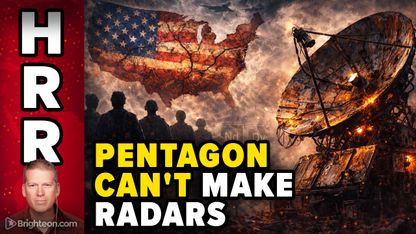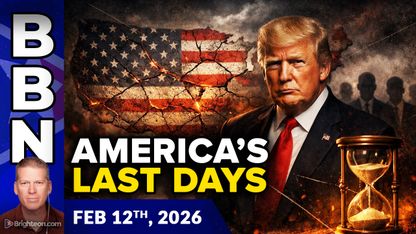
One of those serious people is Secretary of State Mike Pompeo. In a meeting with state governors last week, the former U.S. congressman and CIA director warned that Beijing is attempting to infiltrate state and local governments at virtually every level in an attempt to influence policymaking in a way that is favorable to China.
“It’s [China] assessed our vulnerabilities, and it’s decided to exploit our freedoms to gain advantage over us at the federal level, the state level, and the local level,” Pompeo said during a Feb. 8 speech at the National Governors Association meeting held in Washington, The Epoch Times reported.
“Competition with China is not just a federal issue,” Pompeo said. “It’s happening in your states, with consequences for our foreign policy.”
The nation’s chief diplomat gave a number of examples to support his claims, such as efforts by China’s Consul General in New York City.
Last month, he sent a letter to the speaker of the legislature in a state Pompeo did not identify in an attempt to urge U.S. officials to “avoid engaging in any official contact with Taiwan,” such as “sending congratulatory messages to the electeds” or “inviting officials in Taiwan to visit the United States.”
Pompeo told attendees the letter, from which he read, demonstrated that a Chinese diplomat in the United States was engaged in an effort to keep a U.S. elected official from engaging in “his right to freedom of speech.”
China has always considered Taiwan little more than a renegade province that someday should be reunited with the mainland. Beijing has threatened to do so by force if the island democracy were to ever attempt to formally declare independence.
‘Competition with China is happening inside your state’
Nevertheless, China has also long engaged in efforts to diminish Taiwan as a sovereign entity, though it clearly is: It has its own government, separate from the mainland, its own foreign policy, its own military, and its own economy.
Still, China has routinely criticized foreign leaders and governments for treating Taiwan like an equal among other recognized nations or otherwise engaging in friendly relations. China has also blocked Taiwan from joining international organizations like the World Health Organization.
The island does have one major ally: The world’s lone superpower, the United States. And after President Tsai Ing-wen won reelection in a landslide last month, Pompeo, along with scores of U.S. lawmakers, sent her congratulatory messages.
More recently, Taiwan’s Vice President-elect William Lai visited the U.S. from Feb. 3-8 and took part in the National Prayer Breakfast in Washington, D.C., on Thursday.
As for Pompeo’s warning, he also noted that a Communist regime-backed think tank in Beijing produced an assessment last year that ranked U.S. governors as “friendly, hardline, or ambiguous” regarding how they viewed China.
As such, he urged governors to remain vigilant for any attempts at influence engaged in by China.
“Competition with China is happening inside of your state, and it affects our capacity to perform America’s vital national security functions,” he said.
He used as an example the Florida Retirement System, which is one of the largest public pension funds in the country. The fund is a major investor in “Hikvision, a Chinese manufacturer of surveillance equipment that supplies gear to Chinese authorities in Xinjiang for monitoring Muslim minorities,” The Epoch Times reported.
Also, California has invested a portion of its retirement funds in firms that supply the Chinese military.
“Don’t lose sight of the competition from China that’s already present in your state. Let’s all rise to the occasion and protect our security, our economy; indeed, all that we hold dear, all of those freedoms,” Pompeo said.
Sources include:
Please contact us for more information.






















